News
-
 Math
MathHere’s how we could begin decoding an alien message using math
A new mathematical approach looks for order in strings of bits – without relying on human assumptions.
-
 Astronomy
AstronomyIn a first, JWST detected starlight from distant galaxies with quasars
Until JWST’s sharp infrared eyes came along, it wasn’t possible to see the galaxies hosting extremely bright supermassive black holes called quasars.
-
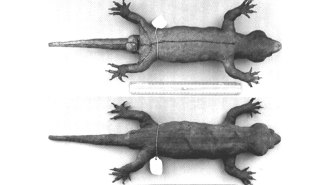 Animals
AnimalsDNA has revealed the origin of this giant ‘mystery’ gecko
A genetic analysis of a 19th century museum specimen, the only known example of the planet’s biggest gecko, has rewritten the animal’s backstory.
-
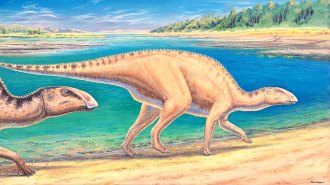 Life
LifeNew fossils from Patagonia may rewrite the history of duck-billed dinosaurs
New findings are adding a wrinkle to researchers’ understanding of how duck-billed dinosaurs conquered the Cretaceous world.
By Jake Buehler -
 Physics
PhysicsPhysicists split bits of sound using quantum mechanics
New experiments put phonons — the tiniest bits of sound — into quantum mechanical superpositions and show they are as weird as other quantum entities.
-
 Climate
ClimateWhy is the North Atlantic breaking heat records?
Record-breaking sea-surface temperatures off the coast of Africa may affect the 2023 hurricane season. What’s fueling the unusual heat is unclear.
By Sid Perkins -
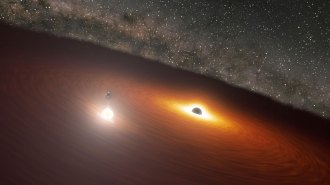 Astronomy
AstronomyA supermassive black hole orbiting a bigger one revealed itself with a flash
A supermassive black hole binary system has puzzled astronomers for decades. Now they’ve finally seen direct signals from the smaller of the two.
-
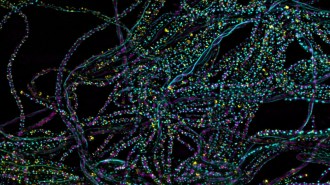 Chemistry
ChemistryOne photon is all it takes to kick off photosynthesis
A single particle of light is the spark that begins the process of turning light to chemical energy in photosynthetic bacteria, a new study confirms.
-
 Astronomy
AstronomyJupiter-sized planets are very rare around the least massive stars
A six-year search of 200 nearby low-mass red dwarf stars found no Jupiter-like planets, boosting the standard theory for how such planets form.
By Ken Croswell -
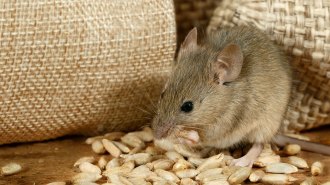 Animals
AnimalsCamouflaging wheat with a wheat smell could be a new approach to pest control
Wheat fields coated in wheat germ oil confuse the noses of mice, reducing seed loss by more than 60 percent, a new study finds.
-
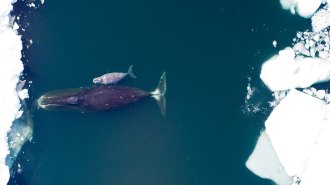 Animals
AnimalsBowhead whales may have a cancer-defying superpower: DNA repair
Bowhead whale cells repair damaged DNA exceptionally well, an ability that could prevent cancer and help the marine mammals live for centuries
By Meghan Rosen -
 Space
SpaceA cyclone has been spotted swirling over Uranus’ north pole for the first time
Voyager 2 hinted at a cyclone at Uranus’ south pole. Now Earth-based observations give the first direct evidence of a storm at the ice giant’s north pole.